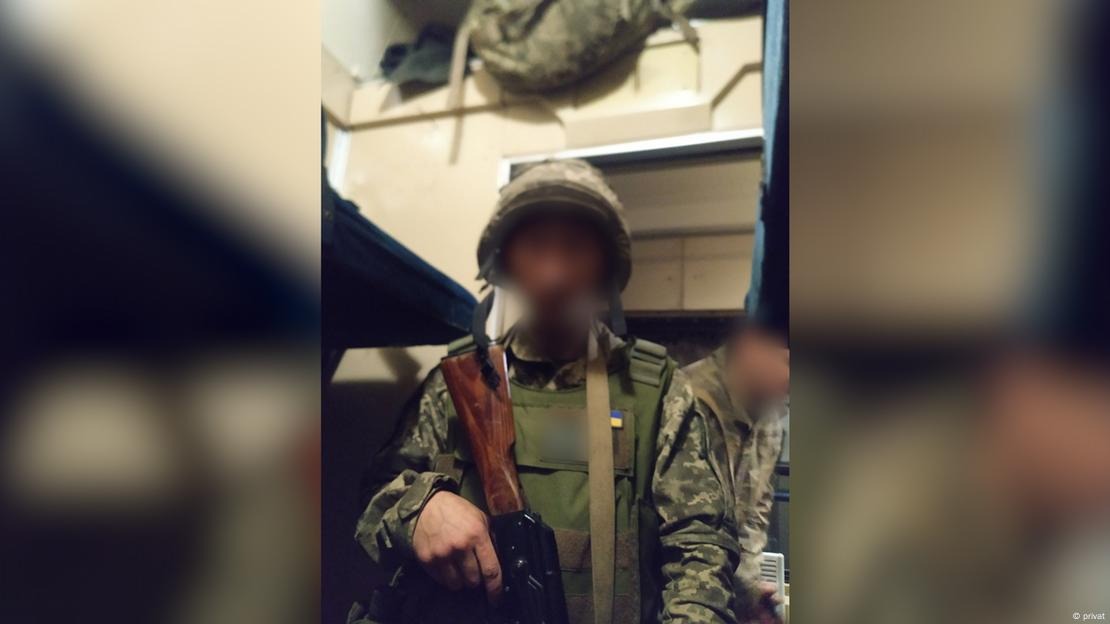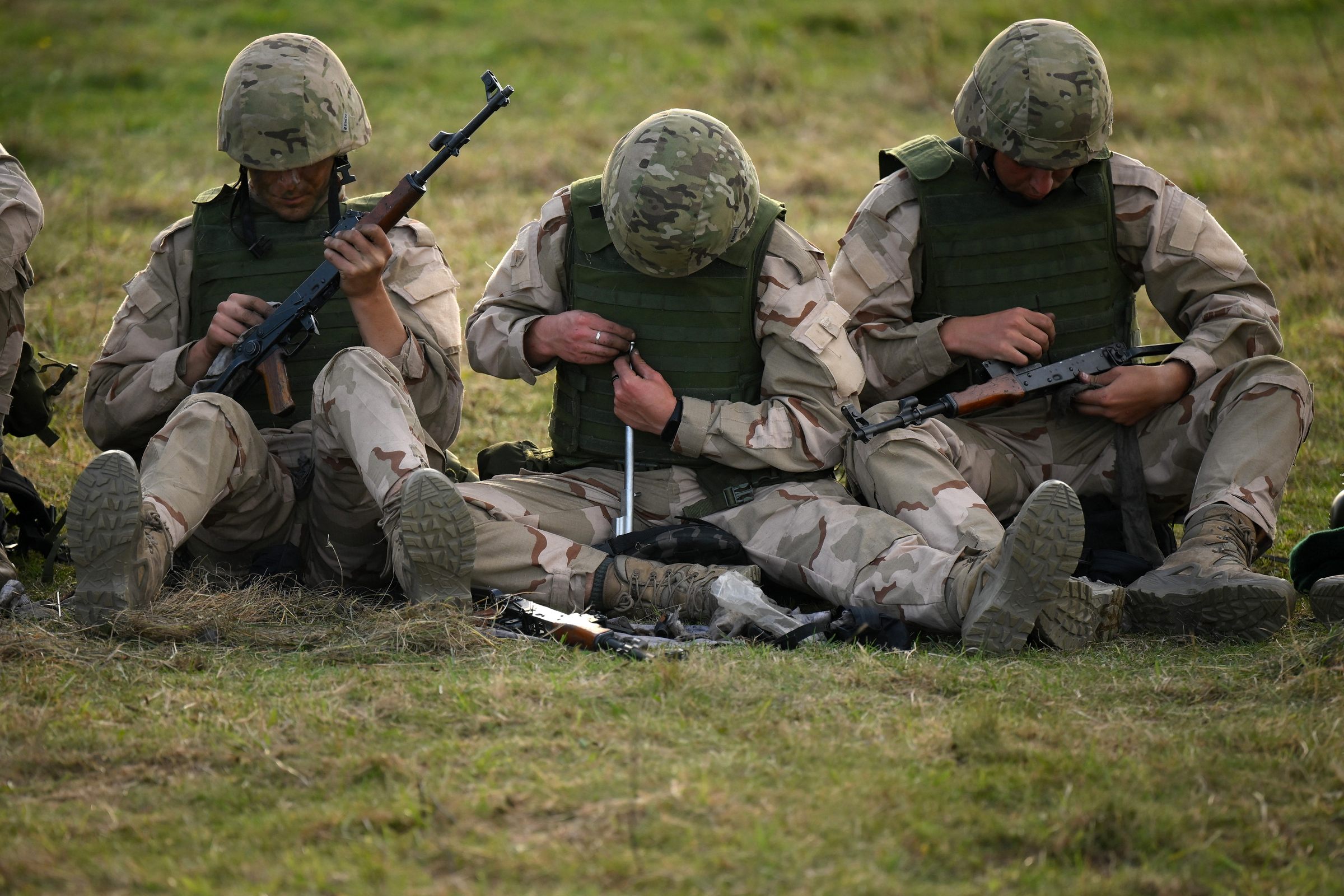Vasyl, 28, from central Ukraine, grapples with forgetfulness, disorientation, and difficulty with colors and numbers. He has been receiving treatment for a personality disorder since 2015.
His partner, Olena, believes Vasyl concealed his condition when called up for military service. As a result, he was deemed fit for duty and sent to southern Ukraine for basic training before deployment to the front lines.
Olena presented Vasyl's 2015 psychiatric hospital records, detailing his condition, to his commanding officer. While initially sympathetic, the officer dismissed the records due to their age.
Vasyl's case is not unique. After over three years of war, Ukraine faces a critical shortage of troops. To meet operational demands and compensate for battlefield losses, the military has broadened its recruitment, even drafting individuals who don't meet standard health criteria.
Dmytro Lubinets, Ukraine's parliamentary commissioner for human rights, acknowledged that individuals with health issues are being drafted, though the exact number is unknown. "This happens when recruitment officers ignore medical records or an individual's health status," he told DW.
 |
Vasyl was drafted despite receiving treatment for a personality disorder since 2015. Photo: privat |
Ukraine uses the Helsi medical database, described as the "most popular medical information system for medical facilities and patients in Ukraine," to check recruits' health status. However, Vasyl's psychiatric diagnosis wasn't on Helsi, according to Ukrainian lawyer Yevhen Tsekhmister. Mental health information is only stored with the patient's consent.
Had Vasyl's diagnosis been on Helsi, he would have been ineligible for service under Ministry of Defense Order No. 402, which outlines medical assessment criteria for military service.
Tsekhmister explained that military doctors rely on official documentation because many recruits have forged mental health certificates to avoid service. "With proper legal counsel and updated evidence, Vasyl wouldn't have been drafted," he stated.
A Ukrainian brigade commander recounted having to choose recruits for his unit, some of whom were missing teeth or had tuberculosis. Some recruits were repeatedly transferred between brigades because no commander wanted them, even for tasks like digging trenches.
Kyrylo, drafted earlier this year, witnessed homeless individuals with swollen legs, drug addicts, and alcoholics at the recruitment office. Medical checks at some recruitment offices were perfunctory or non-existent, he said, with more thorough assessments only conducted at training centers.
Another soldier, Oleksandr, encountered a recruit with epilepsy. He recounted a 2024 incident where an individual with schizophrenia was assigned to a marine brigade. The mistake was caught, and the individual was discharged after a few days without being issued a weapon.
Tsekhmister believes such cases are common. He cited a soldier with low weight, poor vision, developmental delays, and an abnormal chest who has been serving since 2022 despite being unfit for duty. This soldier is frequently transferred between units or hospitals for medical care.
Because none of these issues are officially classified as disqualifying, the soldier cannot be discharged on medical grounds, creating a dilemma for commanders who can neither assign duties nor discharge them. This is particularly problematic in infantry and logistics units.
Lubinets reported over 2,000 complaints of human rights violations during recruitment this year, compared to 3,500 in 2024. While not all complaints are valid, his office responds to each one and sometimes intervenes on behalf of those with health issues.
Lubinets advocates for more careful selection, even amidst the manpower shortage. "Not every health issue disqualifies someone from service. Someone with back pain can't serve in an assault unit but could work on a computer," he said.
Human rights activist Olha Reshetylova, appointed military ombudsman by President Volodymyr Zelensky in late 2024, advises individuals to keep their medical records updated on Helsi and inform their commanders. She noted that mental health can deteriorate during training.
Commanders also prefer not to have soldiers with health problems and facilitate treatment when necessary, Reshetylova added.
 |
Ukrainian soldiers during training near Durrington, southern England, October 2022. Photo: AFP |
The Ukrainian Military Medical Command maintains that procedures are being followed. "Military doctors' assessments are based on specialist diagnoses," said Colonel Yuriy Pololyan, deputy commander of the medical forces. "The system currently doesn't allow for comprehensive assessments based on multiple conditions."
Reshetylova views this lack of comprehensive assessment as a sign that Ukraine's recruitment system needs review.
As for Vasyl, his basic training is nearing completion, and he is about to be assigned to a combat unit. Tsekhmister is trying to arrange a second psychiatric evaluation by military doctors before his deployment. According to Olena, Vasyl has been issued a weapon.
"If Vasyl goes to the front, it will be a danger to his unit," warned Tsekhmister. "No one can predict when his mental state might deteriorate, or who might become a target."
Nhu Tam (According to DW, Reuters, AFP)












